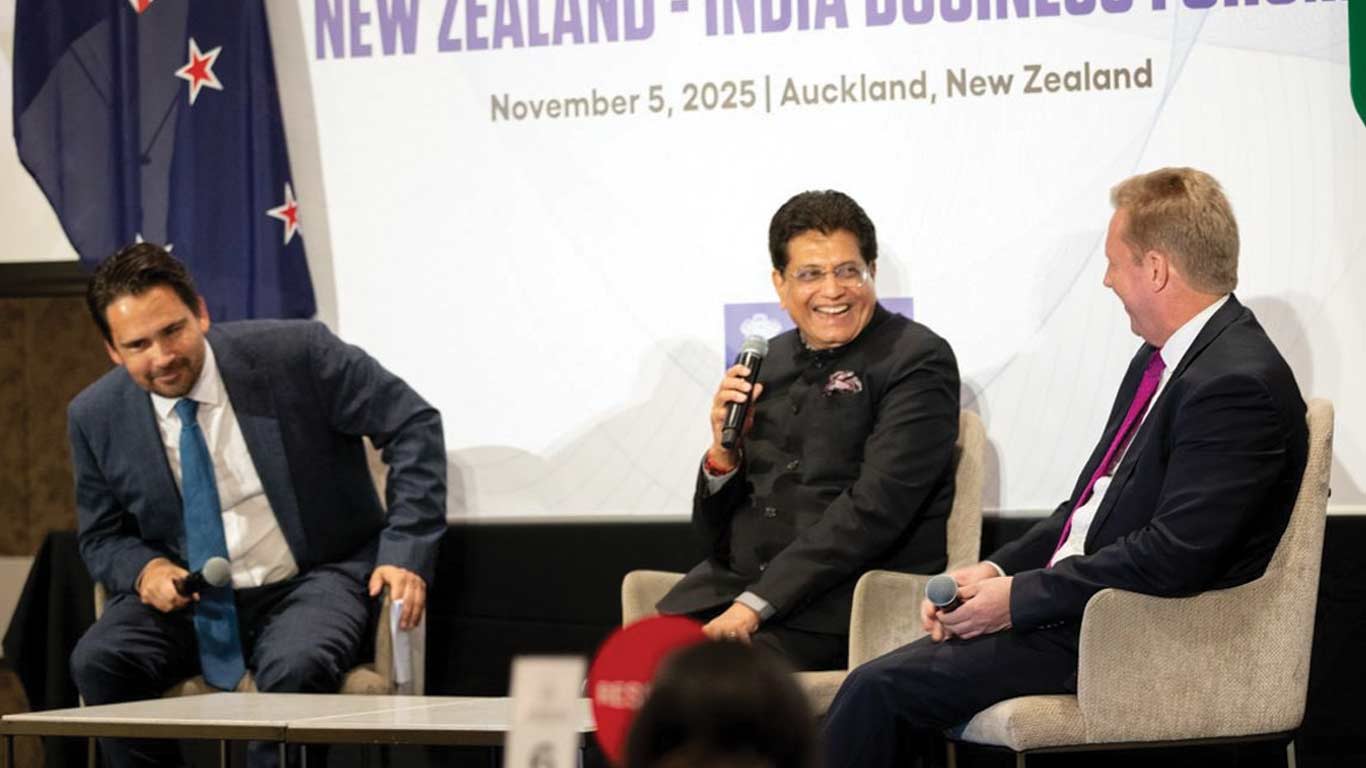Copyright knnindia

New Delhi, Nov 6 (KNN) India reaffirmed its stance on safeguarding sensitive domestic sectors during free trade negotiations, with Commerce and Industry Minister Piyush Goyal stating that the country “consistently protects the interests of its vulnerable sectors” in free trade agreements (FTAs). Speaking in Auckland on Wednesday, Goyal noted significant progress in ongoing talks with New Zealand. New Zealand has been seeking wider access to India’s agricultural market, particularly for dairy and alcoholic beverages such as wine. India has repeatedly identified dairy products — including milk and butter — as a ‘red line’ due to political and livelihood sensitivities. “India never compromises on the interests of dairy, farmers and MSMEs. We consistently protect the interests of vulnerable sectors. We respect each others’ sensitivities...we will not touch such issues,” Goyal told reporters in Auckland, Business Standard reported. While tariff discussions remain central, the two countries are also exploring broader cooperation areas, including technology and machinery in the dairy sector. Goyal is leading a senior commerce delegation for the fourth round of India–New Zealand FTA negotiations, which resumed in March after a decade-long pause. India and New Zealand first launched talks 15 years ago, but discussions stalled after ten rounds, with no formal engagements since February 2015 until this year. According to Goyal, the recent momentum may reduce the need for many additional rounds. New Zealand Prime Minister Christopher Luxon stressed the importance of strengthening bilateral economic ties, including people-to-people exchanges and labour mobility, as part of the proposed FTA. “India is a country of huge importance to New Zealand’s prosperity, security, and society,” Luxon said on X, noting the opportunity for New Zealand businesses in the Indian market. Bilateral trade between the two countries remains modest. India’s exports to New Zealand totalled USD 752 million in 2024, against imports worth USD 791 million. India’s key imports from New Zealand include metals, forestry products, wool, and fruit, while exports include pharmaceuticals, precious stones, textiles, and agricultural machinery.



